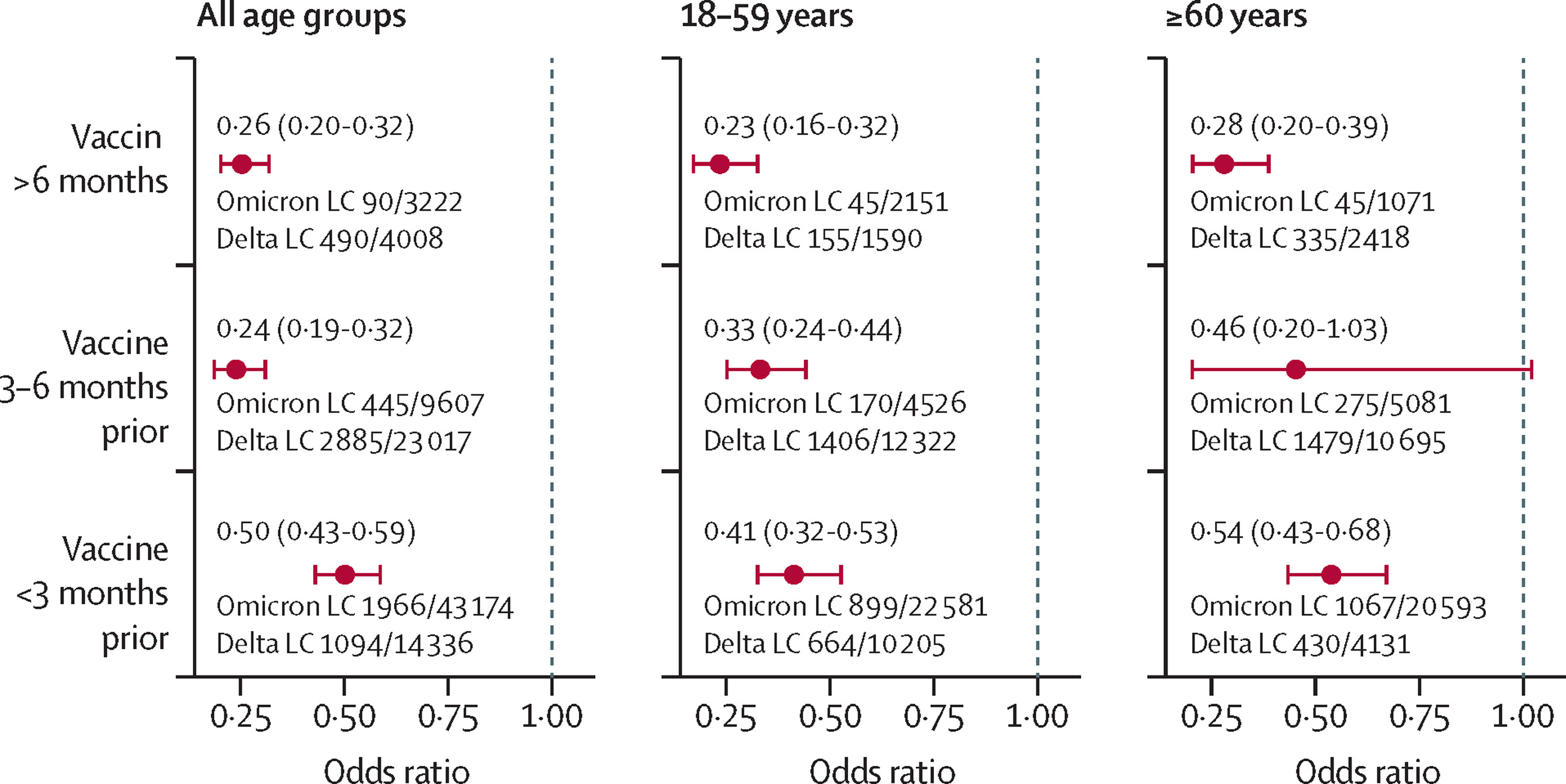Among adults vaccinated against COVID-19, the odds of developing long COVID amid the omicron wave were about 20 percent to 50 percent lower than during the delta period, with variability based on age and time since vaccination.
The finding comes from a case-control observational study published this week in The Lancet by researchers at Kings College London. The study found that about 4.5 percent of the omicron breakthrough cases resulted in long COVID, while 10.8 percent of delta breakthrough cases resulted in the long-term condition.
While the news may seem a little reassuring to those nursing a breakthrough omicron infection, it's cold comfort for public health overall since the omicron coronavirus variant is much more transmissible than delta.
"Far more people were infected first with omicron than with delta," Kevin McConway, an emeritus professor of applied statistics at the Open University, said in a statement. "So even if the percentage of infected people who got long COVID during the two waves is on the scale that these researchers report—and it may well be—the actual numbers of people reporting long COVID after first being infected during omicron is still far larger than during delta."
For The Lancet study, researchers examined self-reported symptom data from 56,003 UK adults who were first infected with SARS-CoV-2 during the omicron wave and 41,361 UK adults who were initially infected during the delta period.
The researchers, led by Claire Steves, a senior clinical lecturer at King's College London, defined long COVID as having new or ongoing symptoms four weeks or more after the start of acute COVID-19, which is how it's defined in the US National Institute for Health and Care Excellence guidelines.
Significant burden
When the researchers adjusted for age, time since vaccination, and other health-related factors, the relative odds of developing long COVID after omicron ranged from around 23 percent to 50 percent. The odds were best when people were closer to vaccination (within less than three months) and aged 60 and older.

The study has limitations, the most obvious of which is that it is based on self-reported symptom data and doesn't dive into the severity of the long COVID cases. There was also insufficient data to look at long COVID rates among unvaccinated people, and the study did not include data on rates in children.
The study was also done during the BA.1 wave, as David Strain, clinical senior lecturer at the University of Exeter Medical School, noted in a statement. The subsequent omicron subvariants, including BA.2, BA.2.12.1, and the up-and-coming BA.4 and BA.5, may have different profiles regarding long COVID risks.
Still, even if the estimate of 4.5 percent holds up over time, that translates to a lot of people developing long COVID. This "creates a significant public health burden of this disease with no known treatment, or even reliable diagnostic test," Strain added.
Steves echoed the sentiment, saying in a statement: "The omicron variant appears substantially less likely to cause long-COVID than previous variants, but still 1 in 23 people who catch COVID-19 go on to have symptoms for more than four weeks. Given the numbers of people affected, it's important that we continue to support them at work, at home, and within the [National Health Service]."



3175x175(CURRENT).thumb.jpg.b05acc060982b36f5891ba728e6d953c.jpg)

Recommended Comments
There are no comments to display.
Join the conversation
You can post now and register later. If you have an account, sign in now to post with your account.
Note: Your post will require moderator approval before it will be visible.